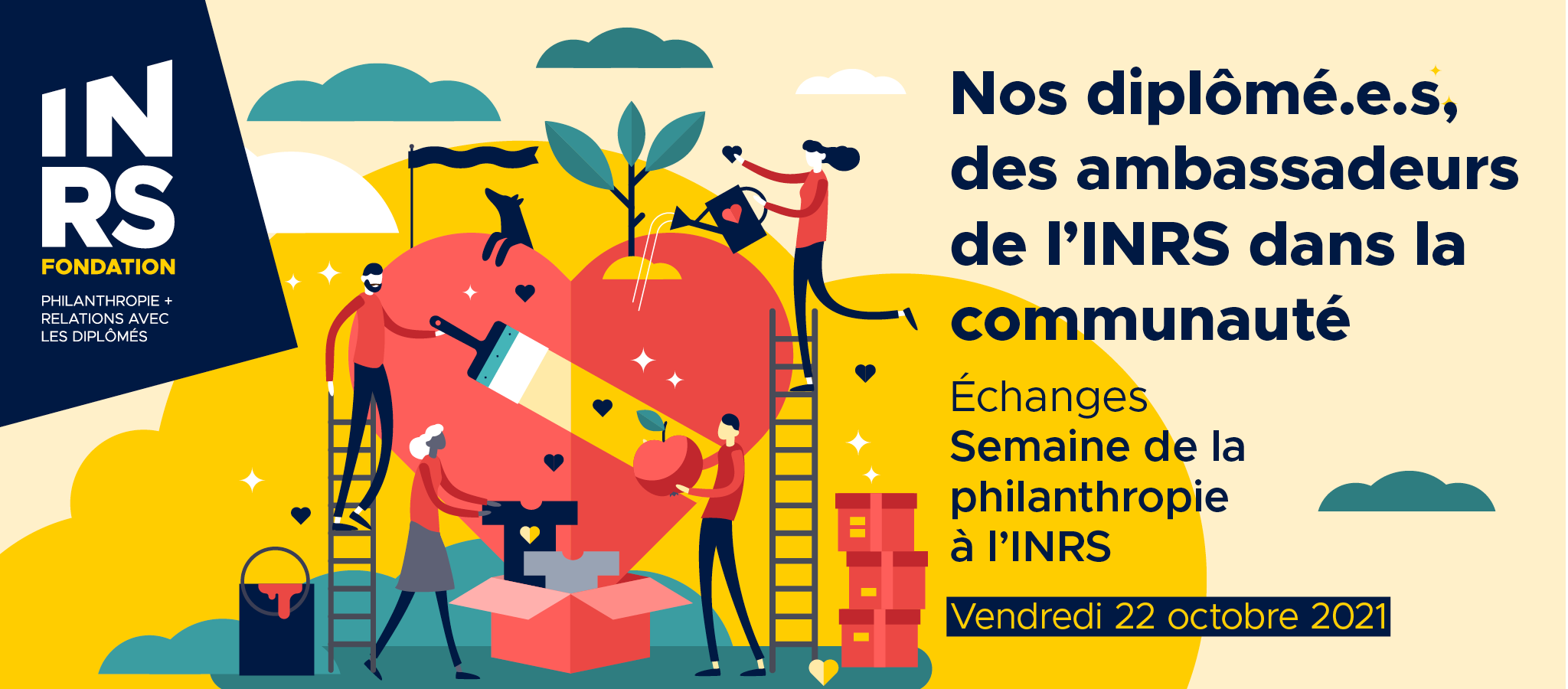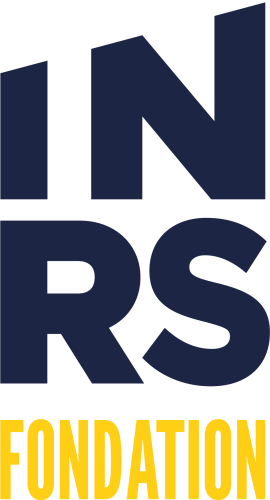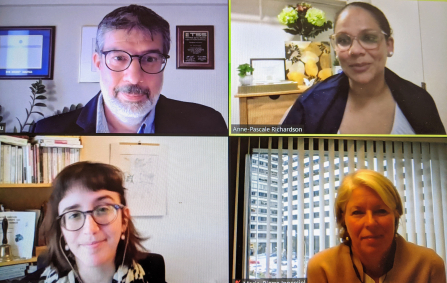
The second edition of Philanthropy Week at INRS wrapped up today after five days of meaningful and relevant discussions between members of the greater INRS community. Thank you to our graduates and Prix Lumières Awards recipients Eric Irissou, Sophie Dufour-Beauséjour and Marie-Pierre Ippersiel who accepted to share their experience at INRS, and to Anne-Pascale Richardson (Ph.D. in Biology) who expertly led this round table. Here’s an overview.
The positive impact of INRS on their professional path:
- From the outset, Eric, Sophie, and Marie-Pierre spoke very highly of INRS and how it helped them expand their academic and personal experiences. They all credit their INRS education for the multidimensional positions they hold today.
- According to them, the INRS approach, based on multidisciplinarity, helped them develop the flexibility, greater adaptability, and creativity that they use today to collaborate with stakeholders from varied fields.
- Great team work, multiculturalism, diversity, and openness to different approaches are also key aspects of reseach and training at INRS, which had a positive impact on their careers, preparing them well to evolve in various settings.
- Eric’s M.Sc. and Ph.D. in Materials Science gave him the approach and tools to succeed in his current role as Team Leader at National Research Council Canada, working with about 30 companies and organizations to build bridges betwen research and industry. His experience with the tight-knit team at the Énergie Matériaux Télécommunications research and training centre allowed him to deepen his scientific knowledge but also gain valuable technical skills.
- Sophie’s Ph.D. in Water Studies enabled her to transition from a Master’s in physics to her current position as Policy Analyst for the Government of Canada. She now uses her skills and training to find tangible solutions to help Indigenous communities in northern Canada fight climate change.
- Marie-Pierre came to INRS to anchor her academic experiences and consolidate them into a unique expertise. Thanks to her Ph.D. in Urban Studies she can now interact seamlessly in political, business, and research spheres and succeed in her current role as President and CEO of PRIMA Québec, contributing to the development of the innovation ecosystem in the field of advanced materials.
- Research on a human scale and a healthy and safe environment also contributed to Eric, Sophie, Marie-Pierre, and Anne-Pascale’s positive experience at INRS. The fact that INRS focuses on graduate studies is another significant advantage, particularly with regard to the availability of professors. Eric, Sophie, and Marie-Pierre all developed close ties with their thesis directors, who have become mentors.
A strong sense of belonging and a desire to give back to INRS:
- Eric, Sophie, Marie-Pierre and Anne-Pascale are extremely grateful for everything they received from INRS, and all have a deep desire to give back so that others can have the same positive experience.
- Whether through friendships, research projects in partnership with INRS or volunteer opportunities, they all have preserved culivated a close relationship with their alma mater.
What the Foundation can do to foster the development of INRS:
- According to Eric, the Foundation is the one thing that was missing at INRS. It will help engage and raise graduates’ contribution so that INRS gets more financial and influential support, like in American universities.
- Continue to organize significant events for the entire INRS community.
- Increase its presence on social media to incentivize graduates to follow and share.
How to highlight INRS graduates:
- Get in touch with the Foundation to submit inspiring career paths or appointments and successes. Think about the alumni you would like to make shine through the next call for nominations for the prix Lumières Awards, which will open in early 2022.

